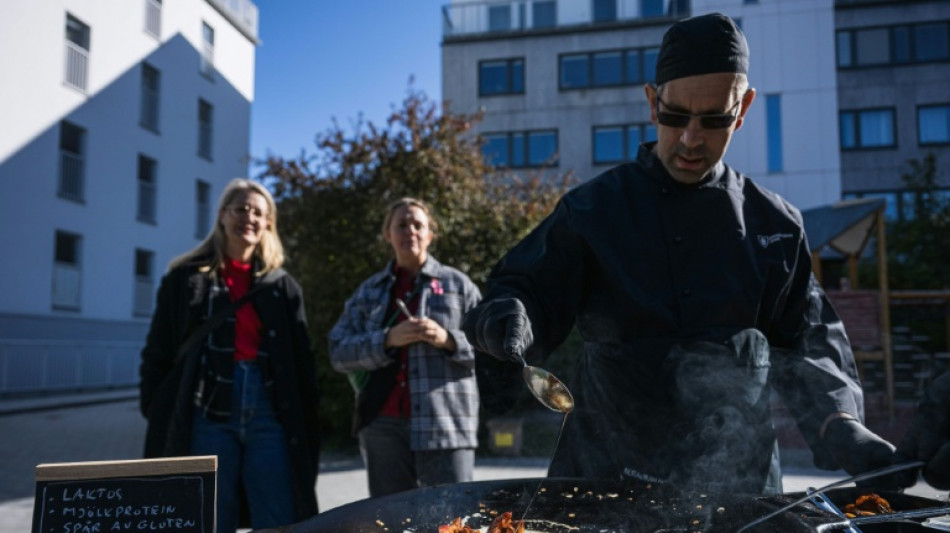

Swedes stock up on food as fears of war deepen
Swedes are stocking up on food items in case of war, as more conflict in Europe no longer feels like a distant possibility and authorities encourage measures to boost readiness.
At a civil preparedness fair in southwest Stockholm, 71-year-old Sirkka Petrykowska told AFP that she is taking the prospect of hostilities seriously and preparing as much as she can.
"I have bought a camping stove. I have taken a course on preservation in an old-fashioned way, where you can preserve vegetables, meat, and fruit that lasts for 30 years without a refrigerator," Petrykowska said.
"I've set aside blankets for warmth, I bought a gas burner for heating. I've also stocked up at my countryside home," she continued.
In late September, Sweden held its annual Preparedness Week, where authorities seek to raise awareness as part of the country's "total defence" strategy.
The country revived the strategy in 2015 following Russia's annexation of Crimea, and more measures were introduced -- including the appointment of a Minister for Civil Defence -- after Moscow's full-scale invasion of Ukraine in 2022.
The idea is to mobilise all of society, from authorities to citizens and businesses, to collectively resist armed aggression while maintaining essential functions.
- Pesto, powdered milk and dried meat -
The focus, as it often is in Sweden, is on individual responsibility.
Everyone is encouraged to stockpile enough food to live independently for at least seven days without external aid in the event of a crisis.
That means "resources can initially be directed for instance to elderly and sick people", the Swedish Food Agency writes on its website.
"Meanwhile, society has time re-adjust so that everyone can get help," it continues.
The Swedish Civil Contingencies Agency (MSB) has published a list of recommended foods that are high in fat and protein, and easy to store.
It includes pesto, dried meat or fish, jam, chocolate, mashed potatoes, powdered milk and biscuits.
"In a war scenario, people will be more physically active than under normal circumstances," Oskar Qvarfort, emergency planning officer at the Swedish Food Agency, told AFP, adding that on average the increased need will be about 100 calories.
Martin Svennberg, a business developer from Stockholm, has taken the advice to heart and stockpiled ample food reserves in his basement for his family.
Stacked in boxes in a cramped storage unit are 100 kilograms of flour, dozens of cans of various foods, and an array of freeze-dried meals, enough to last them three months.
For him, the food is not just for sustenance but also for moral support, which is essential in such situations, he stressed to AFP.
"Stocking up on food that you like and that you eat in normal life, I think that is really important," he said.
"I mean when you go to your mum's place or dad's place and you get the food that they made for you as a kid, you get that sense of relief and nostalgia. The same thing goes for food in a crisis," Svennberg said.
- 'Real challenge' -
According to an MSB survey of 2,000 people, 86 percent of Swedes believe the country is worth defending in the event of a military attack, and 76 percent would be willing to defend it as part of Swedish civil defence.
The agency has twice sent out a brochure to all Swedish households informing them of how to act in a crisis, once in 2018 and then in 2024.
The survey, published in March, showed that 39 percent of people felt "worried" when receiving the 2024 edition, compared to 24 percent in 2018.
Sweden also faces logistical challenges owing to its large size, with many areas sparsely populated.
"A large part of food production is concentrated in the south ... and the majority of imports also primarily arrive in these regions," Qvarfort said.
Food transportation would therefore be "a real challenge" in the event of an armed conflict, he said, adding that Ukraine is currently facing the same issue.
I.Khatri--MT




